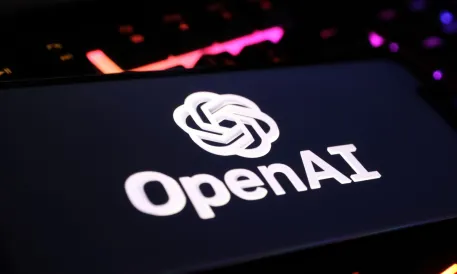Morocco is in talks with OpenAI, the U.S. company behind ChatGPT, to integrate advanced artificial intelligence into its national development agenda.
The meeting in New York between Amal El Fallah Seghrouchni, Morocco’s Minister Delegate for Digital Transition and Administrative Reform, and OpenAI executives was announced on the sidelines of the 80th U.N. General Assembly.
The discussions align with Morocco’s Digital Morocco 2030 plan to accelerate digital transformation while embedding ethical and culturally relevant AI practices.
OpenAI talks signal Morocco’s growing AI ambitions
According to Morocco’s Ministry of Digital Transition, the meeting with OpenAI focused on research collaboration, ecosystem building, and innovation. Officials emphasised the importance of creating an AI framework that respects Morocco’s cultural values while boosting competitiveness in education, governance, and industry.
El Fallah Seghrouchni described the talks as part of Morocco’s effort to balance global partnerships with domestic innovation. The potential collaboration could extend to developing large language models (LLMs) optimised for Arabic dialects and local contexts, positioning Morocco as a leader in AI-driven economic growth in North Africa.
With the AI market in the region projected to reach $1.4 billion, Morocco is seeking to secure a first-mover advantage. By working with OpenAI, the kingdom aims to modernise public services, safeguard data sovereignty and ensure that technology evolves in line with local priorities.
Morocco’s expanding AI partnerships in 2025
The talks with OpenAI are part of a broader AI push launched this year. Earlier in September, Morocco signed a memorandum of understanding with French startup Mistral AI, focusing on training, applied research, and the ethical use of generative AI. The agreement is designed to strengthen local skills and stimulate startup-driven innovation.
The government also unveiled a National Responsible AI Platform, a hub dedicated to developing LLMs tailored to Morocco’s linguistic, cultural, and legal environment. Officials called it a “strategic step” toward AI sovereignty, emphasising that local datasets and expertise will remain central to future deployments.
On September 26, Morocco partnered with the United Nations Development Programme (UNDP) to launch the Digital for Sustainable Development Hub in New York.
This initiative aims to share inclusive AI solutions across Africa and the Arab world, tackling challenges such as fragmented systems and skills shortages.
Meanwhile, Morocco has signed a landmark agreement with French tech firm Onepoint to establish a Centre of Excellence in Data and Artificial Intelligence in the Casablanca-Settat region.
The deal, signed in Rabat by senior ministers and Onepoint leadership, will create more than 500 highly skilled jobs within four years. The centre will modernise public services, support SMEs with Industry 4.0 solutions, and strengthen Morocco’s digital sovereignty.
Implications for Morocco’s digital future
By engaging OpenAI and other international players, Morocco is cementing its place as a regional AI frontrunner. These partnerships complement grassroots efforts like the MoroccoAI initiative, which promotes AI education and industry adoption through workshops and expert networks.
Analysts note that Morocco’s strategy blends public-private cooperation, infrastructure investment, and ethical governance, offering a model for other African nations. If the talks with OpenAI leads to concrete projects, and Morocco could see faster progress toward its Digital Morocco 2030 goals, strengthening agriculture and tourism industries while creating jobs in emerging tech sectors.
In a world where AI readiness is becoming a key driver of competitiveness, Morocco’s proactive approach shows how a nation can use global partnerships to build a sovereign, ethical, and innovative AI ecosystem.











